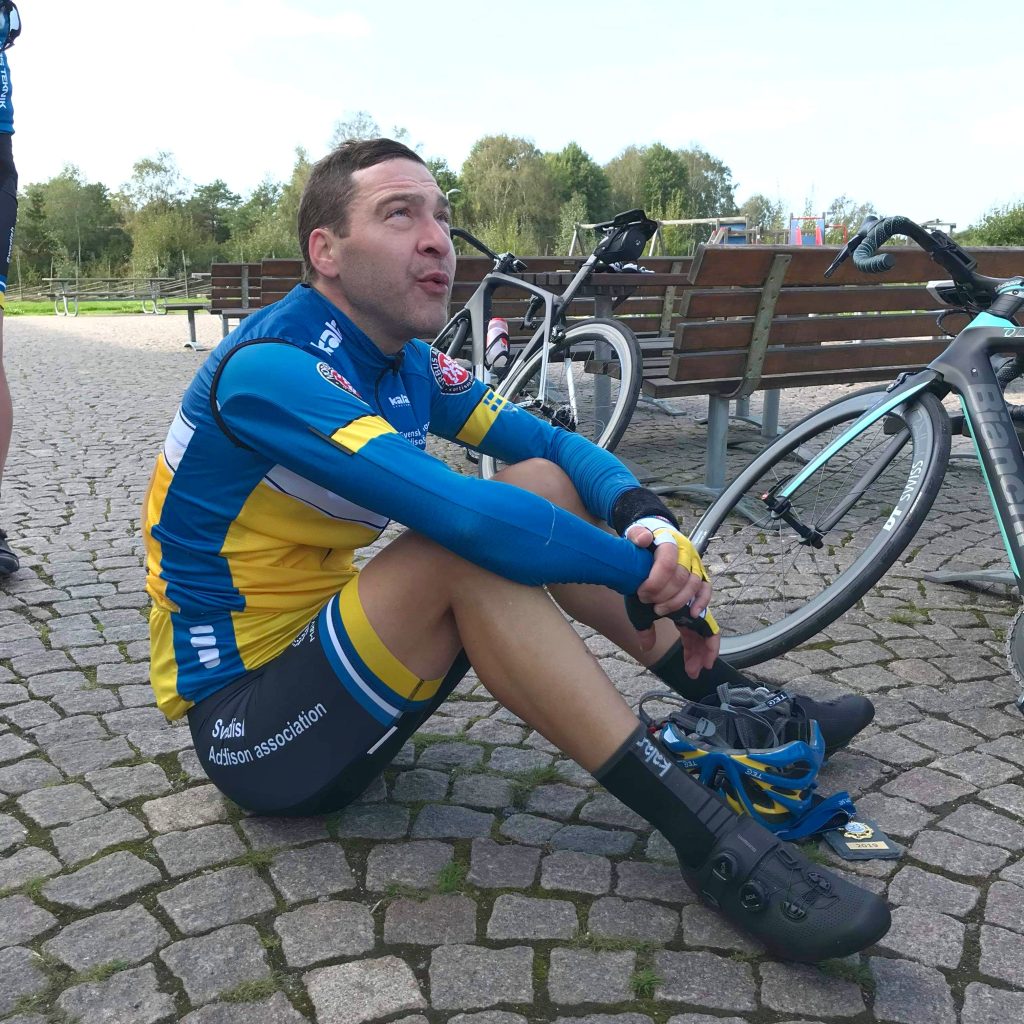It is as common to exercise with Addison’s as it is not. Many have learned to combine training and diagnosis, while others are unsure and do the safe thing before the unsafe.
First and foremost, exercise is good for everyone, regardless of whether you are healthy or have a chronic diagnosis. I myself have four diagnoses and for me exercise is as important as cortisone or insulin!
Scientific evidence shows that exercise is good and some of the positive aspects are:
✔ The breath. Oxygen absorption is improved.
✔ Balance. Regular exercise makes it easier to find balance in other parts of life as well, such as sleep, stress and better food choices.
✔ The heart. The body’s most important muscle is strengthened and pumping ability is improved.
✔ Fitness will improve. It is a good investment for a long and healthy life.
✔ The heart rate goes down, both the working heart rate during exercise and the resting heart rate in bed.
✔ The circulation. Better blood circulation with increased blood flow to the muscles.
✔ Stamina improves, in the gym, on the track and up the stairs to the apartment.
✔ Calming. A harmonious yoga class or a quiet run along the water, say no more!
✔ Endorphins. Secretion of the body’s own “feel good hormone” makes you feel happy.
✔ Fresh air – and daylight! A run, brisk walk or visit to the outdoor gym during lunch is a good way to catch some of the bright hours of the day. It’s guaranteed to make you more energetic for the rest of the day (and is a great addition to your gym visits)!
✔ Vitamin D. In the summer, about 30 minutes outside in the daylight is enough to satisfy the body’s vitamin D needs. During the dark months of the year, however, it is more difficult for the body to produce enough vitamin D from sunlight, so you need to be extra careful with a vitamin D-rich diet and any supplements.
✔ Coherence. Join a running group or start talking to other regulars at your group fitness classes.
✔ The stomach comes into balance more easily when it gets regular exercise.
✔ Natural. We’re built to move, not Netflix marathons on the couch.
✔ Vital. You feel alive when you work out, especially during those intervals that never seem to end.
✔ Younger. Countless studies show that regular exercise keeps you young.
✔ Sex. According to the statistics, those who exercise regularly have a better sex life than those who do not exercise.
✔ Surplus. Most people who exercise have more excess energy than others. Try it yourself and see how energetic and happy you become at work after a sweaty morning session!
Addison’s and exercise
Exercise is stress for the body. The more we exercise, the more stress-resistant we become with the activity. Therefore, many times more cortisone is required the first time you exercise, and when you have done the activity several times, less is required and then decreases, then the daily dose of cortisone is enough.
I compare this to getting a driver’s license. The first time you drive a car, you are nervous, anxious and stressed to keep track of everything. That’s exactly how it is with training the first time and then more cortisone is required. Professor Johan Jendle at Karlstad University Hospital claims that 5 mg of cortisol per hour should be enough, but I claim that it is highly individual. When exercising, you must not have symptoms of too little cortisol, but you must feel strong and “normal”. Because it is individual, you have to test yourself and it can take a long time.
The advantage of training is that you get to know your symptoms and limitations! You sense these earlier because you depend on feeling good during training. This allows you to feel sooner if you need cortisone than if you had not exercised and needed to feel symptoms.
In the vast majority of cases when you feel tired, lethargic, lack of energy, reluctance to exercise, it is due to too little cortisone.
/Martin Norrman
Source: 18 Benefits of Exercise – Why Exercise Is Good for You – Actic
